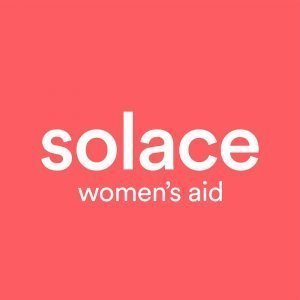The Injustice
After emergency accommodation there is a lack of housing and support available to women who are fleeing sexual exploitation. Transitional accommodation is rare and many of these spaces don’t offer the support needed for a woman who has been trafficked to gain independent living skills.
Support is vital, especially so women can maintain links to education, employment or training. Without the provision of second stage housing for victims of sexual exploitation, there is a risk that many of these women will fall into homelessness or return to the lives they left behind.
Project Progress
The Housing Solution
The Amari project is the successor of the Chrysalis project, which was set up in 2009 as a staged housing model that supported women leaving sexual exploitation. Chrysalis was funded through Lambeth council and took place in partnership with St. Mungos. When local funding cuts meant it could no longer be sustained, the learning from Chrysalis was used to create the Amari project.
Commonweal provides 7 flats that allow our project partners at Solace Women’s Aid to offer security and tailored support to service users. Housing is crucial to the project, as it provides stability and security for the women involved. SWA are able to pilot the Amari project from these houses, giving them space to work with each woman individually.
Amari offers 12-18 months of accommodation and support from SWA that enables women to recover from their trauma and become independent at the same time. They also receive at least three months’ resettlement support, which means that they have a better chance of holding a lease in the private rented sector. This entails emotional and practical support in maintaining a tenancy. The project allows vulnerable women to live in safe, secure accommodation and to gain the life skills and support they need to both recover from trauma and become independent.
The project is open to single women or those with a child under 2, over the age of 18, who have been sexually exploited through prostitution or trafficking. Amari works with women with a mixed range of support needs. Referrals are also taken for those with substance use issues or mental health needs who are receiving support and working towards recovery.
The final evaluation report for the Amari project was released in April 2019. You can read the full report or Executive Summary.
Case Study
A woman on the Amari project discusses the impact it has had on her life. She is originally from Albania and was trafficked, alongside her sister, by a man she believed to be her partner.
"I was referred to the Amari project by my previous support worker from supported accommodation and I moved to a fully furnished one bedroom Amari property in 2017. I was pleased that I could live on my own because living in shared accommodation was very stressful for me. The women I used to live with in the previous house had their own problems and it had negative effect on my emotional and mental well-being.
"My support worker helped me to settle down and make claim Housing benefit and Council Tax Support claims, and to set up bills in my name. I was also supported to get registered with local GP.
"Amari helps me in every way possible. Due to the past trauma I experience weekly non-epileptic fits which can happen any time I get distressed or I talk about my past. The most difficult thing about those fits is that I don’t remember anything that happened before the fit, so when I gain consciousness back, I do not know where I am, who I am with or how to get home (if it happens outside). It affects my life a lot.
"My support worker first referred me to Adult Social Care but they advised her to seek support from the local mental health service. I was linked with CPN and then with the neuropsychology department of my local hospital. What I appreciate is that my support worker attends all these stressful medical appointments with me. Most of the time I have the fit during those appointments and I would not be able to get back home without support.
"I was also referred to the Benefit Advice Service which helped me to make a claim for PIP. They first rejected my claim but I appealed and I have a tribunal coming up. My support worker will accompany me there to provide help and support. Additionally, my support worker liaised with other professionals like CPN and my GP to advocate on my behalf that I cannot attend the assessment for ESA. They were all successful, I did not have to attend the assessment and I am now receiving ESA support group, higher rate benefit. This means a lot to me – this means that I have enough money to travel to see my sister and two nephews who live far. My sister and my nephews are all my world and it is important for me to see them regularly.
"On top of all this, my support worker recently applied for a holiday grant and I was awarded £350. This grant allowed me to travel to another country where I met with my other sister who I hadn’t seen for over 10 years.
"I cannot say “thank you” enough to the Amari Project."
Related news
Our response to the government’s announcement of funding for local councils to provide accommodation-based support for survivors of domestic abuse.
A London-based housing project is providing crucial support for women who have been victims of sexual exploitation.
Women exiting prostitution and trafficking offered vital support in new partnership with leading London domestic and sexual abuse charity.
Subscribe to our newsletter
Keep up to date with our latest projects and news by subscribing to our newsletter.









